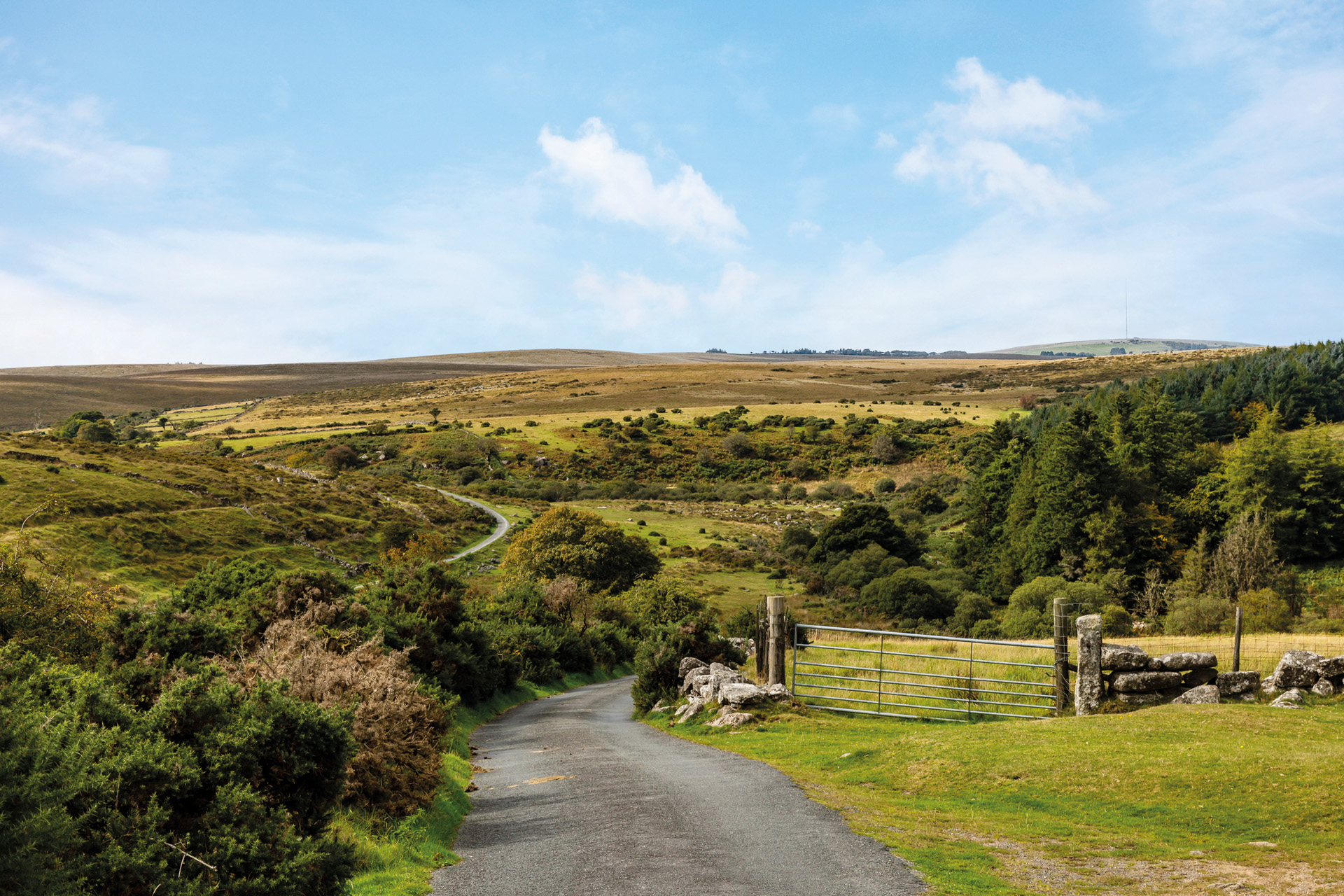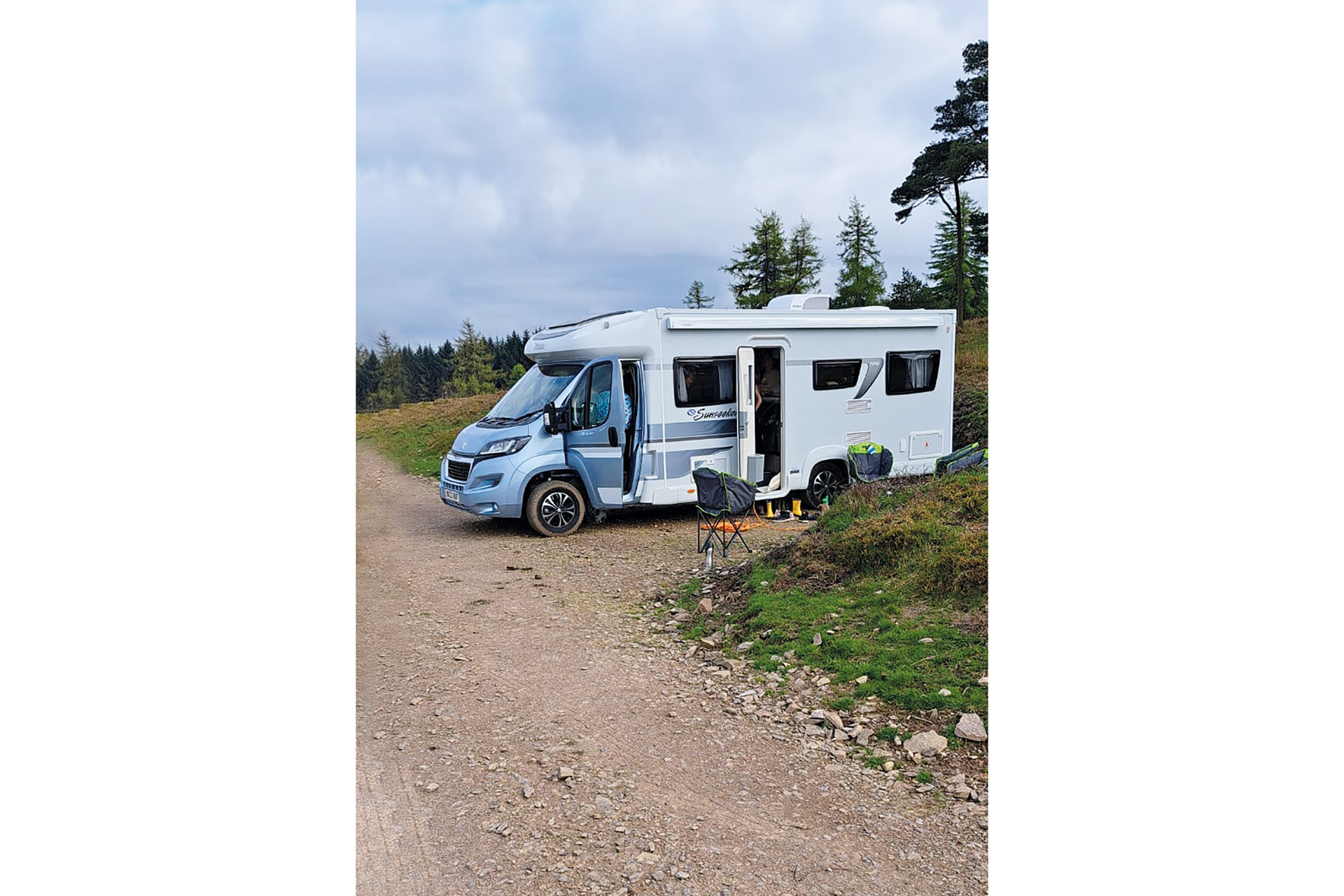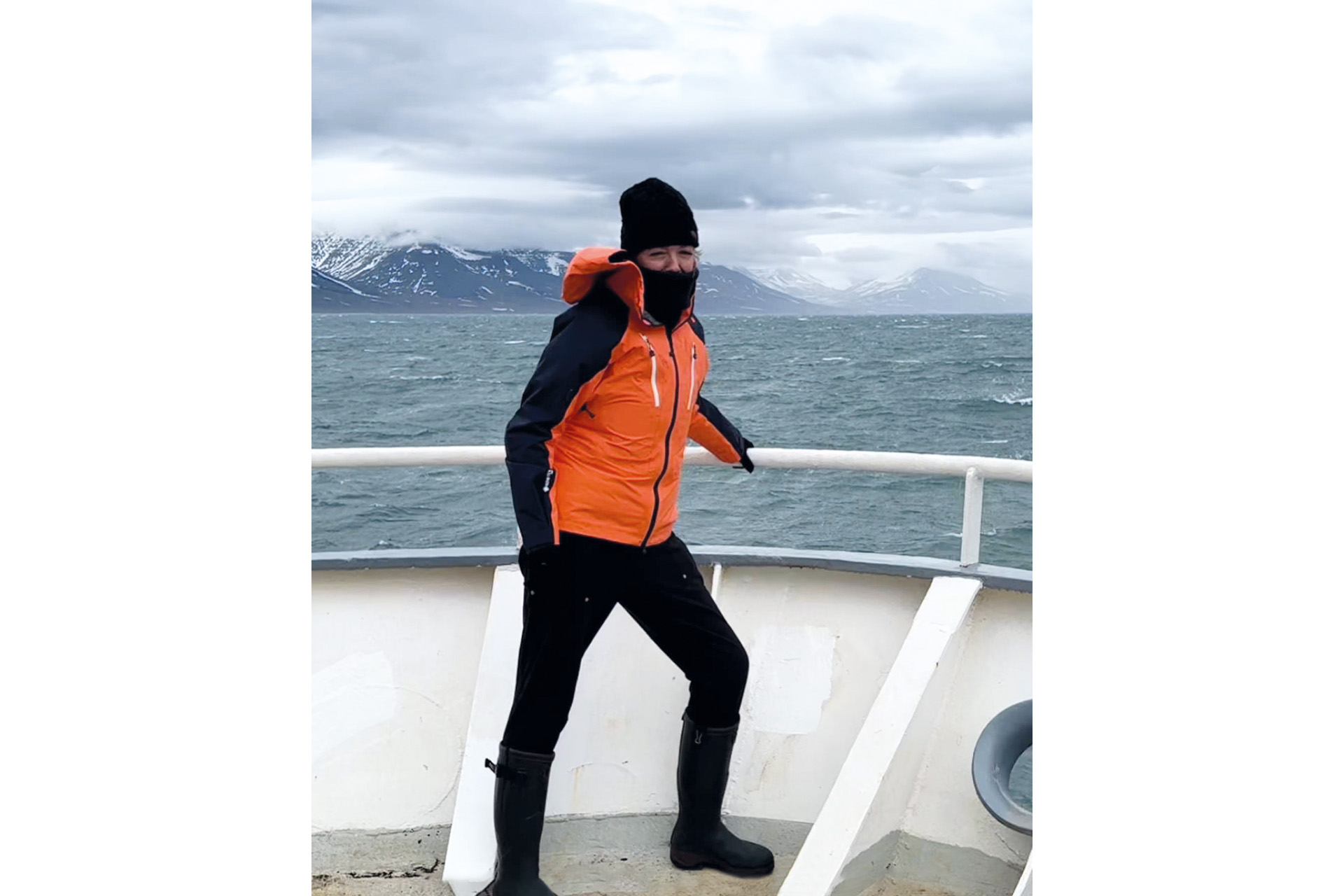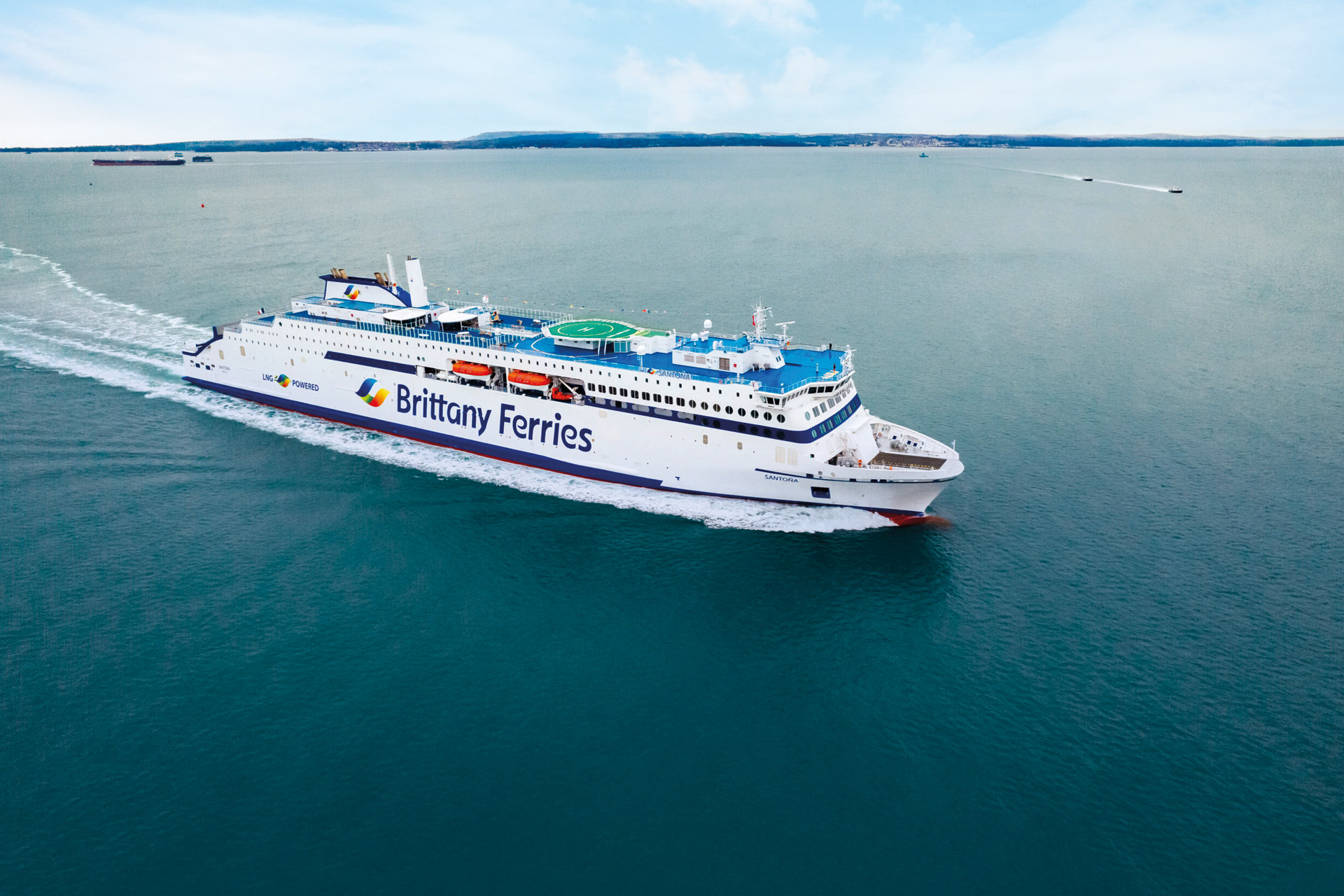Three Slow Travel Ideas For Your Next Adventure
By
10 months ago
We'll take the slow lane

Looking for slow travel ideas? From motorhoming and ferries to a sea-crossing freighter, these C&TH adventurers decided to ditch the flight this time…
Read the C&TH Responsible Tourism Guide
Three Slow Travel Ideas For Your Next Adventure
1. Motorhoming In Devon
This review comes with a health warning: unless you have nerves of steel, good insurance and a stable marriage, do not hire a 25-foot, five-tonne Sunseeker motorhome that’s only done a thousand miles and is the pride and joy of its owner, Pat. Don’t, at least, take it to Devon.
Cortisol levels were, shall we say, off the scale when we finally found our What 3 Words location (advice: download the app prior to going to a region notorious for its lack of 4G), 56 miles yet five hours later, on the edge of a copse, high above the Bristol Channel on the north Devon coast. A litany of classic nouveau motorhome disasters had already befallen us before we had time to boil the kettle on the pristine gas hob.
Mistake number one was to not read the directions properly. We were being hosted by Wild with Consent, a website that offers motorhomers the chance to escape other motorhomers (although, from my limited experience, mo’mers seem an affable tribe: without fail, when on the road, they proffer a hearty hand greeting when they see you – a road equivalent of, ‘ahoy there me hearties’, so perhaps they only don’t like you when you’re stationary) in some of the most secluded spots in the UK, i.e. you get to avoid a campervan convention and go solo – but you don’t get running water or a power source.

To continue: we blithely followed Waze, along the nerve-jangly steep and windy roads that had me covering my eyes wondering whether this hunk of metal could make it round the hairpin bends at a 45-degree angle until the app delivered us, at last, triumphantly to the farmhouse. Not to the off-grid camping site, however. This was, says the sister of the owner (who was, of course, ‘out’), ‘up the road, green caravan, left, up the hill, double gates…’. An hour and a half later, by which time we’d almost blown up the vehicle (a suspiciously smoking rubber tyre), having ended up in a deserted farmyard (apart from four mangey looking dogs who eyed us suspiciously), trying to do a 28-point turn on a muddy precipice, because of course we couldn’t find those double gates. Call the owner! No 4G! Go higher! He’s not answering! When at last we were parked up in our allocated spot as dusk was creeping in , I set fire to the rubber saucepan (don’t ask) trying to boil water for the kids’ pasta. At least the sunset was good.
Motorhoming brings a degree of civility to complete off-grid living. A loo, gas oven, running water, a fridge, even a TV (if you have 4G to hotspot, though that rather defeats the romance, but helpful when the kids have had enough of running around the woods in the rain). It’s like living on a boat, where you need to keep things absolutely shipshape for fear of stepping on the dog or not being able to find your spectacles.
For risk of further mo’mer calamities, the next two days were spent blissfully on two legs. We walked miles through mystical ancient coastal woodlands to the picturesque harbour town of Porlock and its dinky shops, cafés, galleries and pubs. We ate ice cream on the beach, too nippy for a swim. We watched lambs frolic in pastures. We were also thrilled to find a taxi to take us back to camp, where we cooked sausages, played Uno and, yes, I confess, watched Stranger Things on hotspot.
If you’re not wild or off-grid cool enough to sling a hammock between two trees, or just whip out your ground sheet and a sleeping bag and be at one with the elements alone and free, a big, trusty motorhome is, shall we say, a good half-way house. But maybe not in Devon. By Lucy Cleland
BOOK IT: Parsonage Farm Bay, available through Wild With Consent, costs £30 per night (wildwithconsent.com), Goboony is a sharing platform connecting motorhome and campervan owners with travellers (goboony.co.uk).
2. Crossing The Atlantic On A Freighter
The captain had been up since five nudging us through the damp chalky fog, listening for other ships, straining to see icebergs before it was too late; we knew they were out there, floating silently, because we saw them on the ship’s radar.
Crossing the Atlantic on a freighter isn’t for everyone. It takes a week. There’s no internet and there isn’t much to do except hang out on the bridge, play table tennis, eat curry with the Indian crew or chat with other passengers.

Twelve is the max but there were only two on my crossing; a mother and son from New Mexico. I watched DVDs, chilled and worked in my comfortable cabin with a double bed and a desk.
But if speed isn’t a priority, booking onto a cargo carrier is a greener, calmer way to travel. For £100 a night, passengers traverse the world, following the shipping lanes from Antwerp to Namibia, Thailand to Australia. I took the slow boat from Montreal to Thamesport. Instead of dealing with customs, security checks and cramps, I watched a moose cross the St Lawrence River, two whales hoovering krill and dolphins whooping it over the waves. After chugging along the English Channel, we sailed up the Thames, arriving home in the wake of long-gone heroes like Sirs Francis Drake and Walter Raleigh. By Annabel Heseltine
BOOK IT: Find out more at cargoholidays.com
3. Ferrying To Spain
It is with a nervous stomach that I step on board the Santoña ferry – Brittany Ferries’ newest ship using next gen cleaner fuel – at the port in Santander. The way here was fraught, a 36-hour marathon from Portsmouth in which my meals reappeared at least three times.
The truth is that I really want to get on with this journey across the Bay of Biscay. It’d be an easy win for my pot of carbon emissions – the equivalent flight is twenty times more carbon intensive – and a world in which I can cut out that stale feeling of going through airport customs? Utopia.

So, as shoes plant firmly on the ship’s deck, I’m gritting my teeth a little bit. But how wrong I am. Because, arriving at my ensuite cabin and peering out the small port window, I spy waves that are not crashing so much as lapping. No calm before the storm, here – just calm.
It is travel without the ennui of the journey. No cramped knees, no unwanted elbow-to- elbow intimacy with fellow passengers. You’re given free roam to stretch legs, traversing from restaurant to restaurant (there are three, versus a plane’s zero) or to the on-board art exhibition. Standing on deck, exposed to the whip of salty winds, you can spot pods of dolphins gleefully putting on a show for your fellow passengers. And the cabins? Hideaways in which you can plan the coming days, read, or tune into the in-ferry entertainment.
Yes – you will want to tune into the shipping forecast in the run-up to your journey. But there is something special about standing on the deck as the sun sets over distant horizons and endless, endless waters. By Tessa Dunthorne
BOOK IT: Foot passengers £180 + £180 for a four-berth cabin, additional £35 for club lounge entry. brittany-ferries.co.uk






